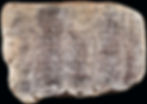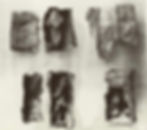The Allure of Curses and Magic in Ancient Greece
- Oct 7, 2021
- 4 min read
Updated: Nov 4, 2021
Our modern fascination with magic, the dark arts and sorcery is neither entirely original nor bizarre – it is a cultural phenomenon that, in part, harks back to the ancient practices and traditions of the Hellenic world. Magic in antiquity falls under a broad spectrum of sacred rites, from public ritual to private uses of magic – its popularity meant that it was often indistinguishable from ordinary forms of religious prayer. In the modern West, magic is often associated with the conjuring of the supernatural or paranormal, of dark forces and ghosts that lurk on the periphery of reality and fantasy. So, in a time when people believed in the gods’ answering their prayers through oracles, why was magic so pervasive in the ancient Greek world?
For some individuals in early Greek society, faith in the gods alone was not enough. The appeal of magic was its enduring quality as a physical, goal-oriented ritual; a method of channeling one’s desires, hopes or hatred towards achieving ordinary or even sinister goals. Recent excavations and emerging scholarly analyses of the Greek Magical Papyri reveal vast sections of magical handbooks, where ancient professionals disclose detailed recipes and prescriptions for a variety of customary purposes. Farmers ensured rich harvests by using magic to bless their land with rain, while others performed rites for enhancing fertility, securing a lover, curing disease, or protecting one’s home against communal threats. People in antiquity turned to such rituals in the hopes to better their fortunes, in a world where common fears and endless uncertainties tormented the lives of all. This collection of spells, hymns and rituals was compiled from sources dating from the second century BCE to the fifth century CE, and its secrecy comes from the unclear circumstances that surround the production of the individual texts.
As for the act of curse-making, the ancient Greeks used a unique form of cursing known as the ‘binding spell’. The practice of writing curses on lead tablets has been widely documented from as early as the fifth century BCE, sweeping across the regions of Sicily, Attica and the shores of the Black Sea. They are usually carved on small pieces of lead, which are folded up and pierced with a bronze or iron nail, to be later buried with a corpse or near chthonic (relating to the Underworld) cemeteries.
It is unclear if these binding rituals evolved as a form of traditional self-help in desperate times, or were more commonly sought by employing a professional magician to perform the rites. The earliest surviving evidence for the work of a professional magician in Greece dates to around 400 BCE, with the discovery of four kolossoi (voodoo dolls) in two different graves, where each doll was found enclosed inside a lead box carved with binding curses.
These curse tablets were often written as letters addressed to underworld deities, as the tendency to summon gods and goddesses through curses was not uncommon and even spanned different cultures and religious beliefs. Hermes and Persephone were popular choices because of their ties to the Underworld, and Hermes’ role as messenger also included guiding souls to the realm of the dead. As such, the ancient Greeks believed that the power of their curses was dependent on the corpse’s ability to read the tablet placed in their grave, their decision to act accordingly, and the rite of passage granted by chthonic gods. The mixing of gods from different cultures in curse invocations – like Anubis and Eros – was also not abnormal, as it ensured that one’s spell was undoubtedly heard.
Beyond the use of curse tablets, amulets and charms were also widely used as forms of protection against sickness, to achieve great fortune or as a counter-magic for any potential curses targeted at its wearer. Other magical activities also included but were not limited to love potions, necromancy, astrology and purifications. Our modern-day assumptions of witchcraft and the dark arts originate from the erotic magic of antiquity, where love potions were made from eccentric ingredients like a lizard’s phallus, or its tail which were used in amulets to promote sexual vitality.
As a fascinating area of scholarly inquiry, the study of magic in antiquity allows us a deeper insight into the cultural and social histories of ancient Greece, as well as its elaborate belief systems and traditions. Although the view on magical practices differed between regions and eras, magic was often discouraged and even punishable despite its undeniable popularity. It was subjected to public disapproval by authorities, but little was done to completely stop its grasp over society. Even Plato criticised its presence in Greek society as deceitful, claiming that sorcerers deceive their clients and subsequent victims. Socrates also argued that magic unwillingly deprived people of the truth: ‘those bewitched… are those who… are enchanted by pleasure [or] terrified by some fear.’, defining magic as a way of controlling the emotions of pleasure and fear; forcing its victims to change their opinions and to act unwillingly. In driving out true opinion, magic instilled its victims with false opinions, which was viewed as evil.
Despite past scholarly criticism of magic as the domain of the superstitious, its universality and influence among all classes of society should not be overlooked. Who knows, perhaps the lead inscriptions buried with matching voodoo dolls – one held by its victim and one in an unknown grave – left a curse that would endure the ages.
Written by Jacey Quah,
Hellenic Museum volunteer and Bachelor of Arts (History) student at the University of Melbourne.




